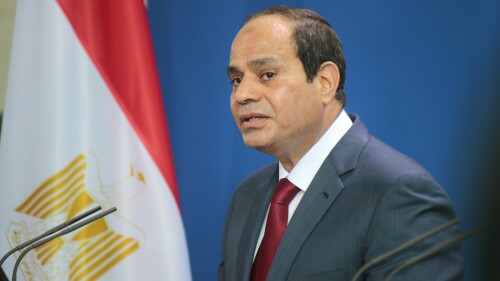Middle East specialists in U.S. universities often call for a Palestinian “right of return.” It sounds good, but it has deeply ominous implications.
Here’s what those scholars have to say.
- Rashid Khalidi, Edward Said professor, Columbia University New York: “a fair, negotiated settlement … must lead to the establishment of a sovereign, independent state for the Palestinians with Jerusalem as its capital; that the right of return must be guaranteed.”[i]
- Hisham Sharabi, Omar al-Mukhtar Professor of Arab Culture at Georgetown University: “The need today is to create an institution that will embody this consensus, say, a General Palestinian Conference. Inscribed on its banner should be the right of self-determination and the right of return.”[ii]
- Phyllis Bennis, fellow, Institute for Policy Studies: “Certainly not all Palestinian refugees will ultimately opt to return. But the right to return is absolute, and cannot be compromised away.”[iii]
- Joseph Massad, assistant professor in the Department of Middle East and Asian Languages and Cultures at Columbia University: “To ask the [Palestinian] diaspora and the refugees to sacrifice their rights, hopes, and dreams, so that some meager political benefits can accrue to native West Bank and Gaza Palestinians is to ask the diaspora and refugees more generally, to commit national suicide.”[iv]
What, in fact, are these academics advocating when they endorse a Palestinian “right of return”?
They are calling for 4.25 million Palestinian Arabs – refugees of the 1948-9 war and their descendants – to immigrate to Israel, turning the Jewish majority in that country into a minority and ending Jewish self-determination in a sovereign state. In other words, its exercise can have only one result: the ending of the Jewish state. Talking of “rights” enables professors to avoid saying this in so blunt a fashion.
This discussion on the “right of return” within the academic hallways is based on a highly specific reading of history, one that assumes an Israeli responsibility for creating the refugee problem via “ethnic cleansing.” Restitution from the allegedly guilty party involves the return of the refugees and their descendants.
Some academics concede that Palestinians and many other Arabs and Muslims are demanding an absolute right of return. Thus, Fawaz Gerges, professor of Middle East Studies at Sarah Lawrence College and an ABC News consultant, admits that, “Arab and Muslim public opinion…does not accept any compromise on the minimal fundamental rights; particularly on the right to Palestinian to East Jerusalem and the right of return for Palestinian refugees.”[v]
Most professors, however, distort the picture by suggesting that Palestinians are actually demanding less; Joel Beinin, former president of MESA, asserts that the “Palestinians do not insist that every refugee exercise the right to return. They do expect that Israel acknowledge that the creation of the Jewish state entailed the destruction of Palestinian society.”[vi]
Palestinians present this “right” as one that will not challenge the Jewish demographic majority of the State of Israel. Salman Abu Sitta, author of The Palestinian Right of Return -- Sacred, Legal and Practical, claims, “the Jewish areas will not be affected at all. Theoretically, the Jews will not even feel their presence. If all of the Lebanese and Gaza refugees return, their number will be equal to that of the Russian Jews who immigrated to Israel since 1989.”[vii]
This line, however, is fabricated for sale to the West. The real Arab position is quite different, according to Sir Alexander Galloway, former head of the UNRWA (United Nations Relief and Works Agency for Palestine Refugees in the Near East) office in Jordan: “The Arab states do not want to solve the refugee problem. They want to keep it as an open sore, as an affront to the United Nations and as a weapon against Israel. Arab leaders don’t give a damn whether the refugees live or die.”[viii] They do give a damn whether Israel lives or dies, however.
Arafat rejected Camp David II to maintain the situation where acceptance of Israel is deferred, the conflict kept alive and Israel is always occupying Palestinians. Otherwise, the two-state solution would have moved from possible to probable. The Arab-Israeli conflict might inadvertently have ended with Israel intact – something that Palestinians have been taught for generations to view as failure.
Distorting the real, empirical history to “discover” alleged rights creates an on-going, unjustified animosity to Israel, and continues to lead even well-meaning Palestinians down a path of false hopes built on false foundations, and thus defers the possibility of an enduring peace settlement that would be of benefit to all.
Uncritical support for the ‘right of return,’ and the obfuscation of its much worse intended effects, is actually but one symptom of the radicalization of our universities, and permeates the entire field. As long as such dangerous and ultimately unfounded tropes are held as self-evident truth, our government – and our students – will look in vain to the universities for constructive counsel and non-partisan scholarship.
Asaf Romirowsky is a research fellow for the Middle East Forum
[ii] (http://www.hanitzotz.com/challenge/62/sharabi1.html)
[iii] http://www.commondreams.org/views/090300-101.htm
[iv] Massad, Joseph. “Return or Permanent Exile? Palestinian Refugees and the Ends of Oslo” Critique, No. 14, Spring 1999. http://www.tari.org/J_Massad.htm
[v] CNN World View September 16, 2000. http://edition.cnn.com/TRANSCRIPTS/0009/16/wv.02.html
[vi] Beinin, Joel. “Camp David II.” Middle East Report Online, July 26, 2000. http://www.merip.org/mero/mero072600.html
[vii] Akhbar Al-Naqab (Israel), December 6, 1998.
[viii] http://www.camera.org/index.asp?x_article=185&x_context=7







